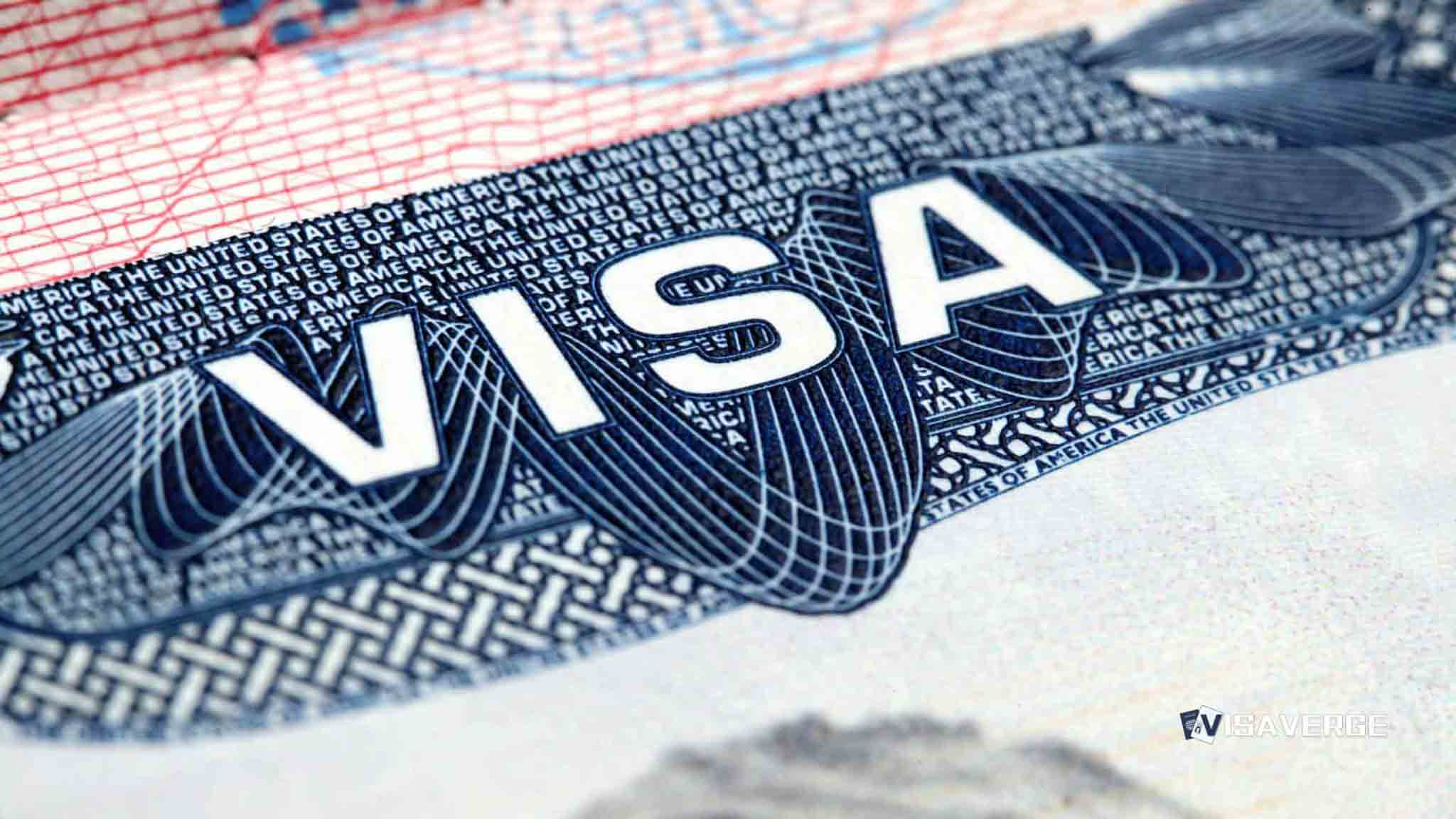Key Takeaways
- Consultancies file multiple fraudulent H-1B visa applications with fake job roles to boost selection chances, bypassing regulations and exploiting workers.
- 74% of IT hiring managers report credential-verification lapses, allowing fraudulent “certification inflation” and mismatched hires to persist in recruitment.
- Fake job offers advertised by scammers mislead candidates, causing financial losses, identity theft, and breaches of trust in recruitment systems.
How Consultancies Fake Job Requirements and Qualifications: A Closer Look
The world of recruitment is under increasing scrutiny as fraudulent practices emerge, tarnishing both the trust in hiring systems and the aspirations of genuine job seekers. Among these, deceptive tactics by consultancies aimed at manipulating job requirements and candidate qualifications have raised significant concerns. By exaggerating credentials, misusing visa programs like the H-1B visa, and crafting misleading job offers, such consultancies exploit systemic weaknesses for personal gain. This article takes a deeper look at these fraudulent practices, their implications, and the actions necessary to combat them effectively.

1. Exaggerating Candidate Qualifications
At the heart of fraudulent recruitment is the manipulation of candidate profiles to meet job requirements they are not genuinely qualified for. Known as “certification inflation,” it involves consultants providing false or inflated details about a job seeker’s qualifications, certifications, or work experience. By doing so, these consultancies make candidates appear more skilled or experienced than they actually are.
For instance, in industries like technology, where certifications validate a professional’s competency, false claims can result in mismatched hires. Fraudulent consultancies exploit automation in recruiting — especially applicant tracking systems (ATS) — knowing employers rely on computerized filters to sift through candidate profiles. By listing non-existent skills on résumés, candidates pass these filters, bypassing otherwise stringent checks.
The risks of certification inflation extend beyond individual applicants. Employers who hire underqualified candidates face losses in time and money, and teams often struggle to meet project expectations with less capable staff. According to a 2024 IT sector survey, 74% of hiring managers admitted to lapses in credential-verification processes, enabling such practices to persist. Worse, this leaves honest candidates with legitimately acquired qualifications at a disadvantage, creating an unfair playing field.
2. Manipulation of the H-1B Visa
The H-1B visa, a U.S. program aimed at bringing highly skilled professionals like engineers and software developers to meet labor shortages, has become a target for consultancies engaging in fraudulent behavior. While this visa benefits both employers and qualified foreign applicants, unscrupulous consultancies have turned it into a tool for profit.
One documented practice involves consultancies filing numerous H-1B applications for the same candidate. By presenting fake job roles paired with fabricated requirements, they aim to increase the probability of selection in the annual H-1B lottery. These fabricated petitions often describe positions with duties the candidate is not truly qualified for – a clear misrepresentation of both the candidate’s ability and the nature of the job itself.
Once these workers arrive in the U.S., consultancies frequently assign them duties at a level far beyond what was formally outlined in their applications while paying them entry-level salaries. In doing so, they bypass regulations meant to protect foreign workers and undermine wages in the local labor market. Furthermore, the financial burden shifts heavily onto job seekers, as consultancies often require candidates to pay illegal fees in exchange for job placement.
In response, U.S. Citizenship and Immigration Services (USCIS) has stepped up audits and enforcement. In 2023, the USCIS introduced additional scrutiny to identify duplicate H-1B applications and revoke fraudulent approvals. However, consultancies adept at exploiting loopholes make it an ongoing challenge to fully address such practices.
3. Fake Job Offers and Misleading Job Titles
Another widespread fraudulent practice is the crafting of fake job offers. Dishonest consultancies or scammers impersonate respected corporations, creating fake offers designed to extract money or personal information from unsuspecting job seekers. These fraudulent offers, sent via email or advertised on questionable job boards, often promise roles at high-profile companies — misleading candidates into trusting the consultancy.
Victims frequently pay high fees “to secure the job” only to find the job doesn’t exist. Besides financial loss, they may also face identity theft if sensitive information like banking details or social security numbers is stolen. Companies such as Ernst & Young and IBM have publicly issued warnings about scammers pretending to represent them, advising job seekers to verify official job postings on the companies’ legitimate websites.
Adding to this, job title inflation by consultancies has become a common strategy to attract candidates. Prestigious-sounding titles like “Principal Engineer” or “Director of Operations” are used to make roles more appealing. However, once candidates join, they often find the work does not align with the promises made, leaving them disillusioned and overburdened without fair compensation. Beyond the individual impact, this practice affects organizations by sowing confusion around roles and responsibilities.
4. Historical Patterns and Emerging Trends
Fraudulent recruitment methods aren’t new. In fact, they have existed for decades, adapting alongside technological advancements in hiring. In the 1990s, fraudsters leveraged newspapers and job fairs, promising guaranteed placements in exchange for upfront fees. Some of these operations went unnoticed for years, scamming thousands of people across different sectors.
In more modern examples, fraudsters adopted digital methods. By the late 2010s, they began leveraging online recruitment platforms, particularly targeting remote positions. Today, automation and data-driven hiring systems have made it even easier for fraudulent consultancies to thrive — preying on job seekers with elaborate schemes.
5. Impacts on Individuals, Employers, and the Economy
The consequences of fraudulent practices reverberate at all levels — personal, corporate, and systemic.
For job seekers, being deceived by false promises leads to financial losses, emotional stress, and diminished trust in future recruitment processes. Moreover, immigrants or international candidates under visa programs like the H-1B often face the double strain of financial exploitation and legal vulnerability due to dependency on their employer for immigration status.
Employers, in turn, shoulder burdens ranging from reputational damage to inefficiencies caused by hiring underqualified candidates. Fraudulent consultants engaging in similar practices can also tarnish their clients’ reputations, as companies may inadvertently employ individuals with unverified credentials.
On a systemic scale, fraudulent recruitment skews employment-related data, distorts wage trends, and undermines confidence in established hiring practices. The broad consequence is an unjust labor market that disproportionately affects the most vulnerable segments, such as low-income individuals and immigrants searching for better opportunities abroad.
6. Preventive Measures and Regulatory Response
Combatting recruitment fraud demands action from multiple stakeholders, including governments, corporate employers, industry bodies, and job seekers themselves. Increased enforcement, such as USCIS vetting enhancements for H-1B visa applicants, represents a vital starting point. However, more concerted action is needed to create institutional safeguards.
For example:
– Employers can introduce stronger verification methods and more rigorous background checks into their recruitment pipelines. Internally developed partnerships with trusted certifying bodies could further ensure authenticity.
– Regulatory authorities must continue targeting deceptive practices with appropriate penalties and expand public awareness campaigns to educate both job seekers and companies about red flags.
– Candidates must remain cautious of fake offers and always verify opportunities through official sources, such as employers’ websites.
Similarly, job platforms must apply artificial intelligence to mitigate fraud by vetting suspicious accounts or postings while proactively banning entities engaging in questionable behavior.
Conclusion
The rise of fraudulent practices in the recruitment space reflects deep vulnerabilities that consultancies and scammers have leveraged to great effect. From unethical certification inflation to the misuse of visa programs like the H-1B and the crafting of fake job opportunities, these malpractices exploit weaknesses across the labor market. According to analysis by VisaVerge.com, addressing recruitment fraud necessitates consistent enforcement, technological innovations, and collective responsibility from all participants.
By implementing robust safeguards and prioritizing transparency in hiring processes, there is hope for reducing these exploitative behaviors. While fraudulent practices will likely remain a challenge, stakeholders at every level — from governments to the private sector — have the means to minimize harm and create fairer opportunities for all workers. For additional information about combating recruitment fraud, visit USCIS.gov, the official resource for related policy updates.
Learn Today
H-1B visa → A U.S. visa program allowing skilled foreign professionals to work temporarily in specialized fields like IT or engineering.
Certification inflation → The practice of exaggerating or falsifying qualifications, skills, or certifications to make candidates appear more qualified.
Applicant Tracking System (ATS) → Software used by employers to automate resume screening and streamline recruitment by filtering candidate applications.
Job title inflation → Assigning exaggerated or prestigious-sounding titles to roles, often misrepresenting the responsibilities or nature of the job.
Duplicate H-1B applications → Filing multiple applications for the same H-1B visa applicant to increase selection chances in the competitive lottery system.
This Article in a Nutshell
Consultancies faking job requirements exploit vulnerabilities in recruitment, damaging trust and fairness. From inflating candidate qualifications to misusing visa programs like H-1B and crafting fake roles, these practices exploit workers and employers alike. Combatting this requires stricter regulations, robust verification systems, and vigilant job seekers. Transparency is crucial to restoring integrity in hiring.
— By VisaVerge.com
Read more:
• H-2B Visa Cap Reached: No Petitions Before April 2025
• CR1 I-130: Role of Marriage Photos in USCIS Petitions
• Intel H-1B Visa Petitions Rejected for Late Filing
• USCIS Updates Family Visa Petitions Procedures
• H-1B Amended Petitions: Top 20 FAQs













